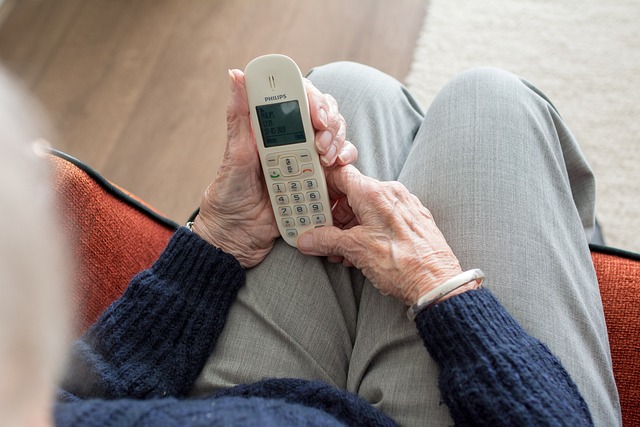Elderly companion services are essential for individuals with dementia, enhancing their daily living and quality of life by providing personalized care, companionship, and cognitive-stimulating activities. These services not only support the clients but also alleviate stress on family caregivers and can potentially slow the progression of dementia symptoms through a supportive environment that promotes cognitive health. Companion service providers are trained to recognize early signs of distress or behavioral changes, crucial for effective dementia management, and collaborate with other support services for comprehensive care. This collaborative approach ensures consistent, empathetic care that respects the autonomy and dignity of individuals with dementia, fostering a sense of independence and community inclusion. These services are adaptable to individual needs and offer activities ranging from physical exercise to memory games, all aimed at improving overall well-being and providing families with peace of mind. Access to these services varies by region, influenced by local healthcare policies and funding availability, making it important for individuals and families to explore available options and advocate for necessary support where needed. Elderly companion services play a pivotal role in the dementia care ecosystem, allowing persons with dementia to age with dignity and respect, and are a key resource for those navigating the challenges of dementia.
navigating the complexities of dementia care often necessitates robust support systems. This article delves into the pivotal role of elderly companion services, offering a detailed exploration of their offerings, benefits, and availability. We’ll examine how these services tailor care to dementia patients, enhancing quality of life for both individuals and their families. By understanding and accessing such support across various regions, caregivers can find invaluable assistance in the journey with dementia.
- Understanding the Role of Elderly Companion Services in Dementia Care
- Comprehensive Overview of Elderly Companion Service Offerings for Individuals with Dementia
- The Impact of Tailored Elderly Companion Support on Dementia Patients and Their Families
- Navigating the Availability and Accessibility of Elderly Companion Services Across Different Regions
Understanding the Role of Elderly Companion Services in Dementia Care

Elderly companion services play a pivotal role in the dementia care landscape, offering tailored support to individuals navigating the challenges posed by dementia. These services are designed to provide companionship and assistance with daily activities, thereby enhancing the quality of life for those affected by this condition. Trained companions offer not only emotional support but also practical help, which can range from reminding clients to take medication to engaging them in meaningful activities that stimulate cognition and maintain social connections. This personalized attention not only eases the burden on family caregivers but also contributes significantly to slower progression of dementia symptoms by fostering an environment that promotes cognitive health.
Moreover, companion services are adept at recognizing early signs of distress or changes in behavior, which can be critical in the management of dementia. They often work in conjunction with other dementia support services, such as memory clinics and adult day care programs, to create a comprehensive care plan that addresses the multifaceted needs of individuals with dementia. By integrating these services, a holistic approach is formed, ensuring that the person with dementia receives consistent and compassionate care that respects their autonomy and dignity while helping them maintain a sense of independence and belonging within their community.
Comprehensive Overview of Elderly Companion Service Offerings for Individuals with Dementia

Elderly companion services play a pivotal role in the lives of individuals with dementia, offering tailored support to maintain their independence and quality of life. These services are designed to provide companionship, assistance with daily tasks, and cognitive stimulation, all of which are crucial for those affected by dementia. Trained companions offer personalized care, engaging clients in meaningful activities that can help slow cognitive decline and enhance social interaction. They also assist with medication management, meal preparation, and help facilitate a safe and supportive environment within the home. Additionally, these services often include coordination with healthcare providers to ensure comprehensive care, thereby ensuring that individuals with dementia receive consistent support and their caregivers have the respite they need. By offering a range of activities from light physical exercise to memory games, elderly companion services not only improve the immediate well-being of those with dementia but also provide valuable peace of mind for their families.
Furthermore, these companion services are adaptable and can be scaled according to the changing needs of the individual with dementia. As the condition progresses, the level of care and assistance provided by the companion can adjust accordingly, ensuring that the individual receives appropriate support throughout all stages of their journey with dementia. This continuity of care is complemented by the companions’ ability to foster a strong rapport with their clients, leading to better outcomes in terms of mental health and overall well-being. Through personalized attention and empathetic care, elderly companion services are an integral part of the support system for individuals with dementia, enhancing their daily lives and enabling them to age with dignity and respect.
The Impact of Tailored Elderly Companion Support on Dementia Patients and Their Families

Elderly companion services play a pivotal role in the lives of individuals with dementia, offering a blend of social interaction and personalized care that can significantly enhance the quality of life for both patients and their families. These services are designed to address the complex needs of dementia sufferers by providing consistent, compassionate support tailored to each person’s unique circumstances. Companions can assist with daily activities, offering a reassuring presence that fosters independence while also alleviating the burden on caregivers. This allows family members to take respite, manage their personal responsibilities, or simply have time for themselves, which is crucial for maintaining their own mental and physical well-being. The presence of a dedicated companion can also help to slow the progression of dementia by engaging patients in meaningful activities that stimulate cognition, thereby potentially delaying the onset of more advanced stages of the disease. Additionally, companions serve as a link between the patient and healthcare providers, often acting as observant allies who can quickly identify changes in behavior or health status, enabling timely interventions and adjustments to care plans. This proactive approach not only benefits the dementia patient by providing them with a sense of continuity and stability but also provides families with the assurance that their loved ones are receiving attentive and personalized care.
Navigating the Availability and Accessibility of Elderly Companion Services Across Different Regions

Accessing elderly companion services varies significantly across different regions, shaped by a combination of regional healthcare policies, funding availability, and local nonprofit initiatives. In some areas, these services are well-integrated into the community infrastructure, offering comprehensive support that ranges from companionship and social engagement to assisting with daily activities and health monitoring. These programs often leverage community volunteers and trained professionals to provide personalized care tailored to each senior’s unique needs, ensuring a harmonious blend of companionship and assistance. In contrast, other regions may have more limited resources, making it imperative for families to research and advocate for the appropriate services. Regardless of the region, the goal is to ensure that elderly individuals receive the companionship and support they need to maintain their quality of life, promoting independence and well-being through specialized elderly companion services. Prospective users and their families should explore local options, as availability and accessibility can vary greatly even within a single country or state, necessitating a tailored approach to finding the most suitable support for their situation.
In conclusion, elderly companion services play a pivotal role in the lives of individuals with dementia, offering a range of support that extends beyond mere companionship. These services are tailored to meet the unique needs of both dementia patients and their families, enhancing quality of life and providing respite care where needed. Accessibility and availability vary across different regions, yet the importance of these services cannot be overstated. It is clear that companion services for the elderly are an invaluable component of dementia care, offering a vital lifeline to those affected by this condition. As such, it is imperative for families to explore and utilize these resources to navigate the challenges of dementia with support and compassion.
